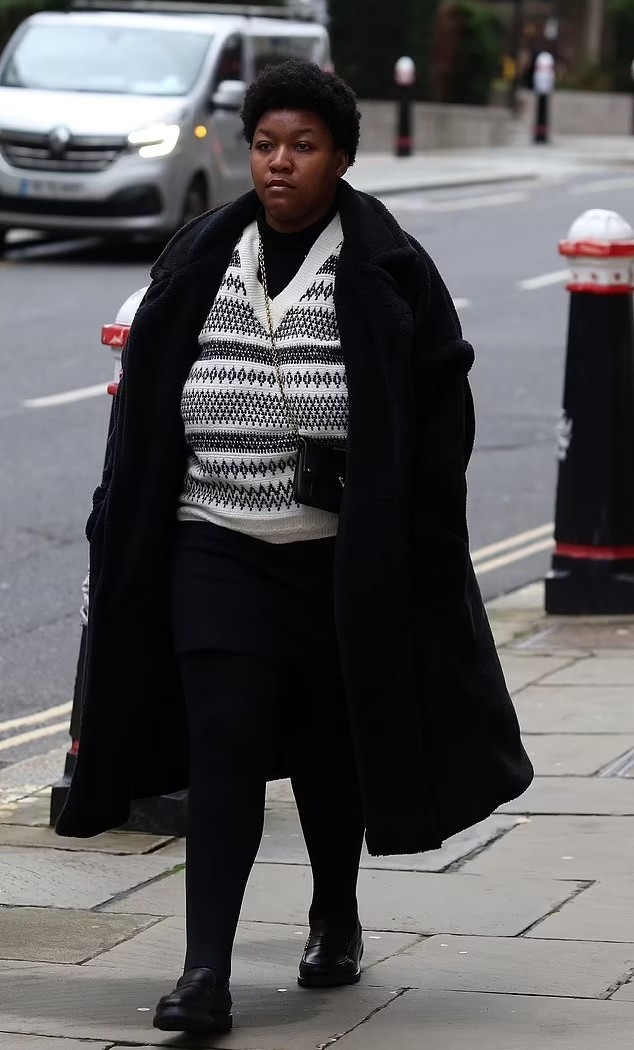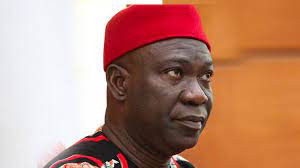UK prosecutors in the case against Former Deputy Senate President, Ike Ekweremadu, have accused him of bringing a street trader to the UK to harvest his kidney because it was “far better to buy one” than find a family member to donate the organ, a court has heard on Thursday, March 9.
Prosecutor Hugh Davies KC accused Ekweremadu, of not approaching family members because he wanted the “medical risk” to go to someone he didn’t know, Sky New reports.

Ekweremadu, 60, his wife Beatrice,56, daughter Sonia, 25, and medical “middleman” Dr Obinna Obeta, 50, are on trial at the Old Bailey over an alleged plot to bring a young man to Britain to donate his kidney.
Prosecutors have claimed the 21-year-old street trader from Lagos, Nigeria, was offered up to £7,000 and the promise of a better life if he made the journey to London, posing as Sonia’s cousin to obtain a visa for the UK.
The man’s kidney would then have been removed at the Royal Free Hospital in Hampstead, north London, before being transplanted into Sonia, who has a “significant and deteriorating” kidney condition, prosecutors allege.
The alleged donor “did not understand” until his first appointment with a consultant at the hospital that he was there for a kidney transplant, jurors have been told at a previous hearing.
When he was rejected as unsuitable, it is alleged the Ekweremadus transferred their interest to Turkey and set about finding another donor.
The street trader was said by the consultant to have a “limited understanding” of what he was there for and was “visibly relieved” on being told the transplant would not go ahead, the court heard.
Ekweremadu was asked under cross-examination today why he didn’t try to find a suitable match among his family members instead of trying to buy a kidney.
The politician said he believed it was not an option after being told about a conversation between his brother Diwe and Dr Obeta in September 2021.
Prosecutor Mr Davies said: “On the question of whether a family member could in principle act as a donor, you decided that was not possible based on a reported conversation between your non-nephrologist brother and Dr Obeta, a non-nephrologist?”
The defendant said: “He would have had basic knowledge. I’m not a doctor so if he says so, I believe him.”
But Mr Davies said: “All you had to do, rather than rely on a second-hand account from non-nephrologists, was to ask one of the specialists you were consulting whether a family member could donate a kidney.”
Ekweremadu suggested he had “limited intelligence”.
The prosecutor rejected the claim, saying: “It is incredible. You do not lack intelligence.
“The fact is you did not even try to ask Sonia’s cousins, for example, to consider acting as a donor.
What you are saying is you had no intention of anyone in your family – immediate or extended – stepping up to donate a kidney to Sonia.
“Far better to buy one and let the medical risk go to someone you don’t know.”
Ekweremadu said it was “not true” that he agreed through agents to recruit a donor to give a kidney to his daughter for a reward.
Mr Davies said: “The pattern of communication reflects none of the type of human communication and contact you would expect if you and your family had believed that [the proposed donor] was a good Samaritan.”
Ekweremadu repeated: “Not true.”
But Mr Davies asserted: “The transplant with [the donor] not having gone ahead, you and your family then immediately sought to recruit further donors for reward, transferring jurisdiction out of the UK to Turkey.
“That failed too because even that donor had not been trained properly to give the false answers when interviewed.”
The defendant replied: “These are not the facts.”
Mr Davies said: “You did not move away from the Royal Free clinical team because they lacked expertise.
“When another donor was required you immediately sought to transfer the clinical process to Turkey.”
Mr Davies queried why the Ekweremadus had been prepared to leave an “internationally recognised centre of excellence” in London for an unknown quantity in Turkey.
Ekweremadu suggested treatment in Turkey was “cheaper”.
Mr Davies responded: “You were looking to cut corners on your daughter’s clinical outcome to save money? You were a wealthy man, senator.”
The defendant denied being a wealthy man.
But Mr Davies said: “That’s not true. Think of the number of properties you own.”
He went on to suggest that Beatrice Ekweremadu, who has a doctorate, maintained an informed interest in what was going on “from beginning to end”
The prosecutor said: “How would Sonia’s treatment not be the dominant discussion in the family? What was more important?”
Ekweremadu replied: “I have other responsibilities to my family and other people.”
Mr Davies said: “What other issue had anything like the level of importance over your daughter’s potentially life-limiting, life-ending condition?”
The three Ekweremadus, who have an address in Willesden Green, northwest London, and Dr Obeta, from Southwark, deny conspiring to arrange or facilitate the travel of the young man with a view to exploitation between August 2021 and May last year.
The trial continues.

